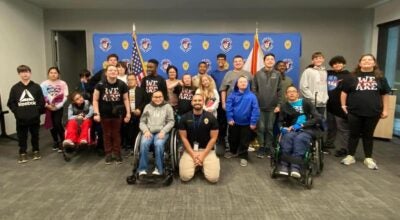Great Backyard Bird Count helps boost citizen science at OMSP
Published 2:22 pm Wednesday, February 24, 2021
|
Getting your Trinity Audio player ready...
|
By NATHAN HOWELL | Special to the Reporter
PELHAM — On Sunday, Feb. 14, around 20 volunteers came out to help nature specialists at Oak Mountain State Park participate in the Great Backyard Bird Count, which is a citizen science project designed to count and track movement of birds within the park.
According to Nature Specialist Lauren Muncher, the Count is a worldwide event where the park partners with groups like the Cornell Lab of Ornithology to foster citizen science and help improve data on birds.
“The purpose is that it gets people from every walk of life involved in citizen science,” she said. “You don’t have to be a rocket scientist to get involved with nature. For a certain specified weekend, people from across the world come together to learn about and count birds.”
The volunteers, which included adults and children, spent an hour looking for birds and counting them to help with this project. Apart from the valuable data collection, this also provided an opportunity for citizens to get connected with nature and learn more about birds.
“It is a way for people to learn about the outdoors and how to identify birds. It got the kids and adults into why it is fun,” Muncher explained. “We are so used to birds, but when you really stop and watch them and how they interact with their environment it becomes really fascinating.”
The event was successful in its goal of collecting data to help ornithologists, as the volunteers were able to count 149 total birds from 14 different species, which will be used to help track bird patterns and help identify disease-carrying or otherwise sick birds.
One such example of sick birds currently is Pike Siskins, which are being afflicted with salmonella nationwide.
“If someone sees an (infected) bird, collect it and take it to the Alabama Wildlife Center located inside Oak Mountain State Park,” Muncher said. “Take feeders down and soak them in a 10-percent bleach solution for 30 minutes. Keep feeders down for a few days to a week to let infected birds move on.”
Muncher hopes that events like this will help encourage participation in citizen science, which has a valuable and notable effect on the environment and the world as a whole.












